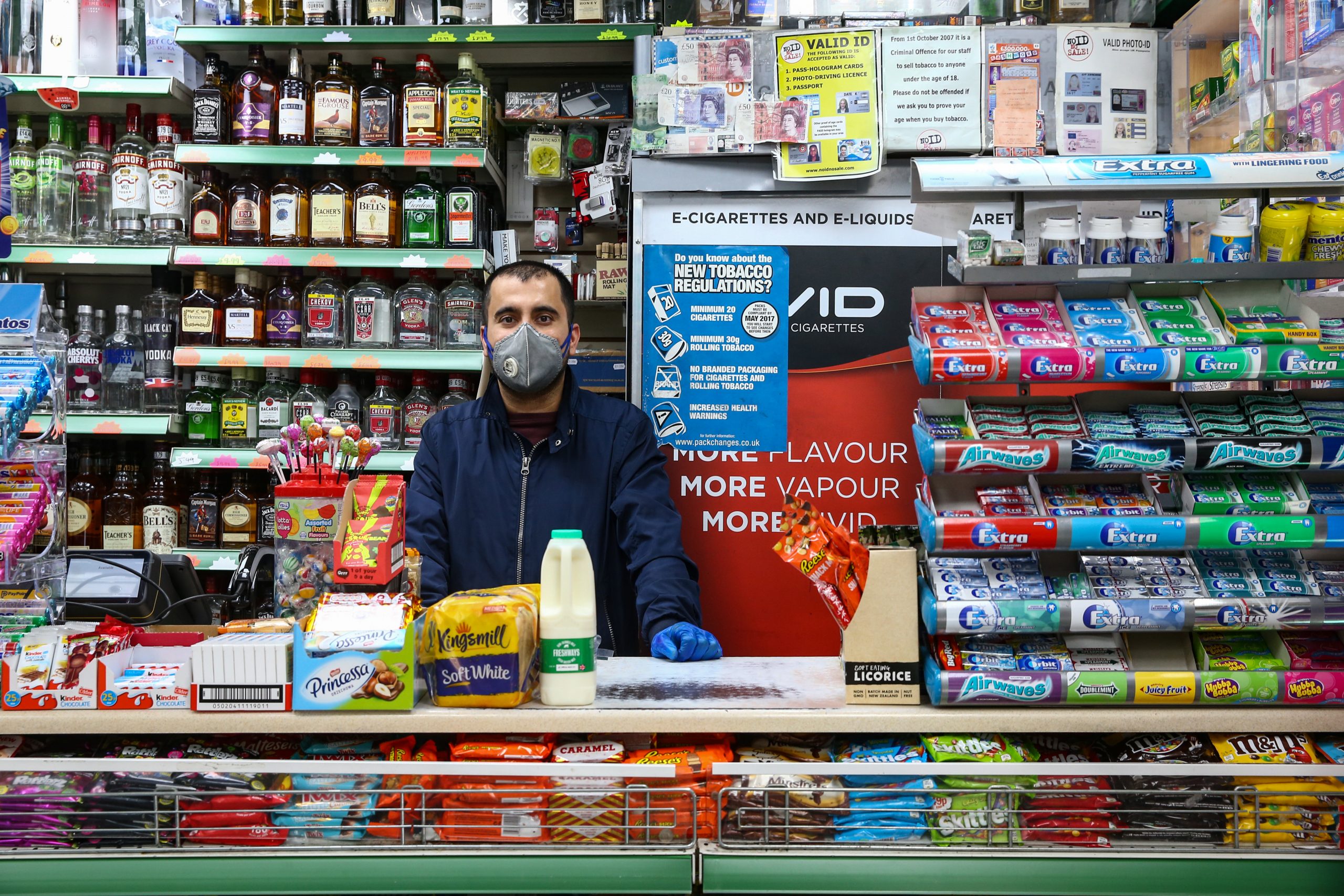
When the New Statesman offices closed as coronavirus spread in mid-March, I spent my last journey home trying to angle my face towards the door of a Tube carriage. I figured I’d rather take a chance with dirty Underground particulates than inhale the breath of my fellow Central Line sardines.
This was the week before official lockdown on 23 March, and it was a surreal period of limbo. Loo roll and own-brand penne had somehow become precious commodities overnight; the slightest throat tickle would bring on a wave of paranoia, and “furlough” was just another underused word in the dictionary. Setting up my home office (a laptop shaded by a broken corporate golfing umbrella during the many unsettling heatwaves of early spring), I felt distant from a story I would be covering for the next three months. There was more to write about than ever, yet so little opportunity to get out of my east London flat to report.
Almost immediately, however, the reality of the pandemic’s human impact came to me in snippets of news. Calls from carers, cleaners, supermarket workers and delivery drivers. Budget breakdowns of councils facing bankruptcy. An email from a frightened security guard. The redundancy notice of a desperate employee forwarded to my inbox. A survivor of domestic abuse fearing her former partner would return. Consultants wondering where their usual heart attack, stroke and cancer patients were. Mothers on my estate lamenting the lack of space for their children to play.
Gaping holes in the government’s response to the pandemic became clear. Just before the peak, one cleaner at a major south London hospital (which she didn’t want me to name) told me she was struggling into work despite her body “hurting all over” – a common symptom of Covid-19. From Monday to Friday, 7.30am to 3pm, she was in constant contact with patients on the wards. “I’m very worried,” she told me, “because if I need to take time off, how am I supposed to pay my bills, pay my rent, pay everything?”
She should have been self-isolating, but couldn’t live on statutory sick pay, which – despite the Chancellor Rishi Sunak’s emergency measures – remains stubbornly at £95.85 per week. It was all her employer, a big government contractor, would offer.
Other cleaners in hospitals, GP surgeries, shops and offices told me similar stories. They were in charge of killing the germs, yet they themselves were not protected.
People who were keeping hermitage Britain going faced the same dilemmas. Those feeding our lockdown takeaway habits, for example, were doing so without being provided with masks and gloves. I heard from an Uber Eats courier who had been off sick with Covid-19 symptoms. At the end of his 14 days of isolation, he still hadn’t received any compensation. Another, who delivered Just Eat meals, had no incentive to stop work despite her doctor advising her to shield because of a platelet condition. Nothing would replace her lost earnings.
As the Treasury’s emergency support schemes were launched for employees and businesses, the casual contractors of our gig economy were abandoned. It appears the government had not – and still hasn’t – understood the implications of modern working practices for many of society’s lowest-paid workers. Outsourcing, agency contracts, zero-hours and part-time work mean they receive nothing above the statutory minimum, if they are even eligible for that. All they have to fall back on is a flawed welfare system that demands a five-week wait for one’s first payment.
For many of the “essential” workers we all depend on, life carried on – until it didn’t. According to the Office for National Statistics, security guards, taxi drivers, bus drivers, chefs and shop workers have been dying at a faster rate from Covid-19 than those in other occupations.
By mid-May, care workers, too, were dying disproportionately, at double the rate of other health workers. The claim often repeated by ministers that the NHS was saved from being overwhelmed by the virus rang hollow to me; the devastation was merely outsourced, quietly, to the care sector.
A carer I spoke to at an Essex residential home in April had told me that seven people in her dementia unit had died with Covid-19 symptoms. Only one, who had been sent twice to hospital, was tested. The test was positive. The carer and her colleagues were still waiting for personal protective equipment or decontamination materials. One wore an apron tied around her face instead of a mask. Another washed a resident with wet paper towels when the home ran out of wipes. “It’s been weeks and weeks without acknowledging the problem,” she said. “They’re putting everyone’s lives in jeopardy – not just the residents; the carers, the staff, the cooks, the laundry workers, everybody who comes into this place.”
My colleagues and I heard from many carers too terrified to go on the record. Usually paid the minimum wage of £8.72 an hour, they could not afford to lose their jobs.
The great betrayal of England’s most vulnerable is now a well-known story. More than half of all “excess deaths” – fatalities above the average in previous years – during the pandemic in England and Wales were care home residents, according to research by the London School of Economics. Numerous sources were telling us in April about patients discharged to care homes as hospital beds were emptied, with little testing, and few resources to isolate them.
Now, we have data to corroborate these stories. The ever-angrier voices at the end of my phone have been vindicated. Yet questions remain about the poor policy they exposed, and the government’s wilful blindness that existed long before the virus.
[See also: Why are Covid-19 cases rising again?]
This article appears in the 01 Jul 2020 issue of the New Statesman, Anatomy of a crisis




